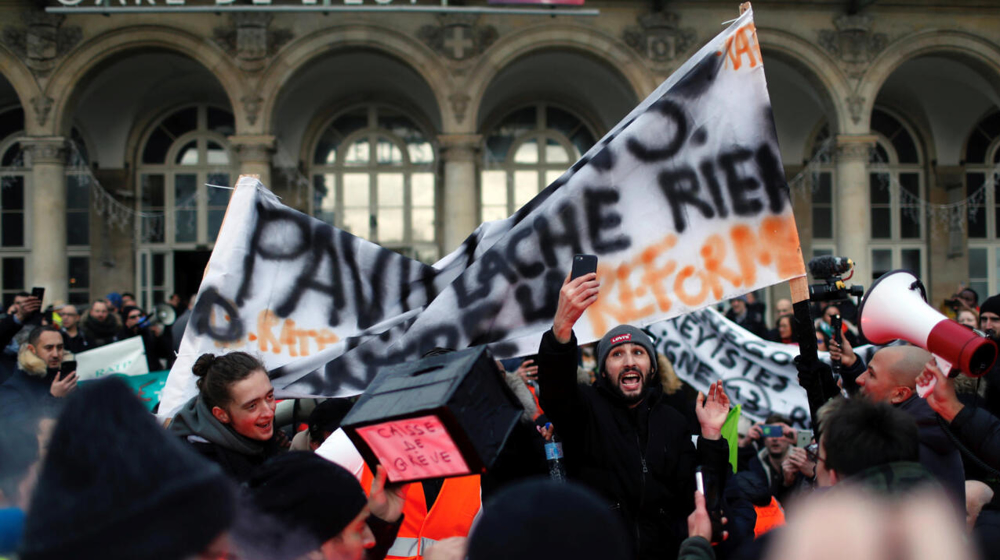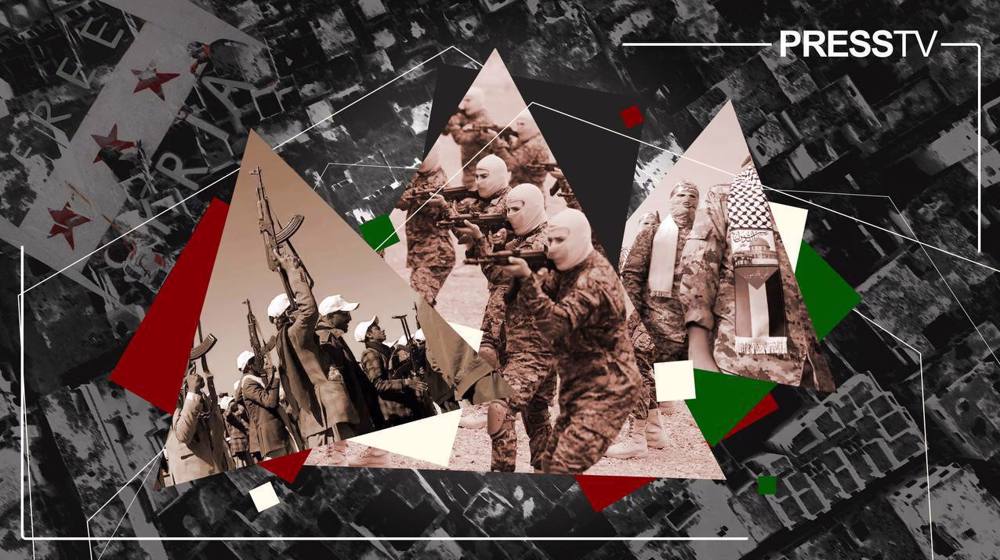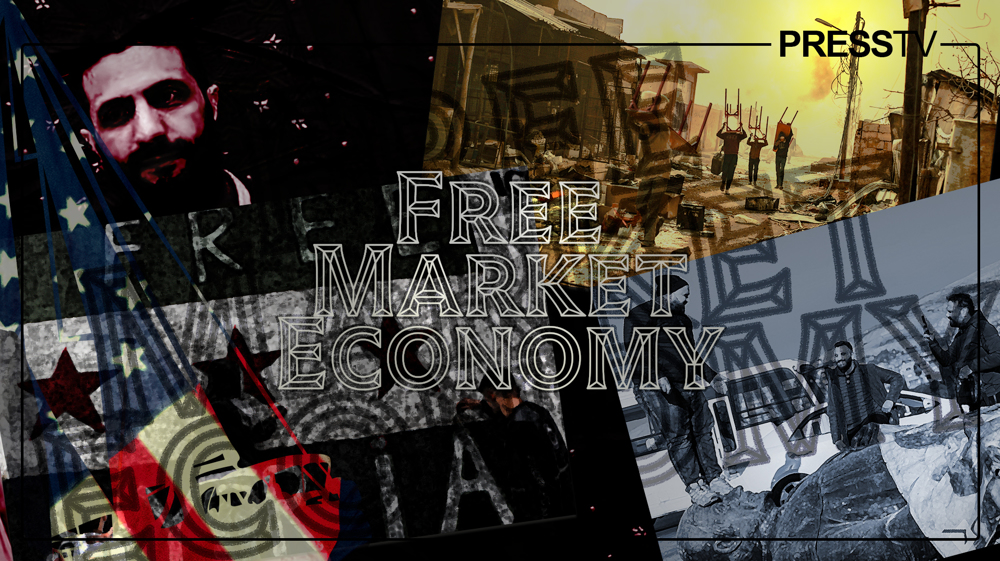Bi-annual repression of French anti-government protests gets usual cover-up
By Ramin Mazaheri
So this is what it’s like being outside of Europe during the repression of their long-running, bi-annual (spring and fall) violent anti-government and anti-EU protests? There’s barely a sound in the mainstream media about them.
Every year since the pan-European project went fully online, 2009, it’s only during the two-year Covid era when Europe has failed to be ablaze with social chaos during their two mild seasons. I assumed the non-European West had been aware, but now I see that their media couldn’t care less.
In France, Italy, Czechia, Germany and elsewhere anti-NATO (i.e. anti-war), anti-capitalism (i.e. anti-austerity/right-wing economics) and anti-government (i.e. anti-liberalism) activism has virulently returned. But anyone remotely paying attention to continental politics realizes this autumn’s protests are not an exception but a return to the norm.
So, of course they are protesting NATO, austerity and police brutality in Europe right now - that’s what they do every autumn, and to no real effect.
What is interesting is to compare the protests in Europe with the current protests against the laws on modesty in public dress in Iran.
In 2019 France, amid the brutal and unprecedented Yellow Vest crackdown, a crowd chanted for despised riot cops to commit suicide - the mainstream media vented their indignation on behalf of the cops but remained silent on the dozen dead and scores of permanently crippled protesters. In 2022 Iran viral videos (all absent in the Western media) have shown a suspected plainclothes cop being horrifically set on fire; madmen shooting blindly into crowds; people falsely posing as policemen (and then enacting who knows what carnage in an effort to discredit the government). Like many in Iran, I don’t even attribute these obvious acts of armed, anti-revolution rebellion to legitimate protesters but to foreign spy agencies. The point must be underlined: Western protesters have nothing like this to contend with, and it’s even hard for them to comprehend the existence of such obstacles.
In 2015 France after the Charlie Hebdo attack Paris expected the world to mourn for their instigating cartoonists. Just this week Daesh has just accepted responsibility for over 50 casualties at a mosque, but the massacre of Iranian faithful gets ignored or diminished by Western media (France24 headline: “Several people killed as gunmen open fire at shrine in Iran’s Shiraz”). I doubt any “Je suis Shirazi” (I am from Shiraz) campaigns will be demanded by Western NGO executives.
At last month’s United Nations general assembly I took a photo of a book put on display by Iran’s delegation, titled “The Encyclopedia of Iranian Terror Victims”. It contains 17,000 names of those killed since 1979 by the Western-supported MKO, Daesh, the Israelis, the House of Saud and others. A victim of the United States, the renowned anti-terror hero General Qassem Soleimani, was recently included. When terrorists killed 3,000 Americans in 2001 the retribution was the destruction of two entire countries.
Certainly this is the coup de grâce: The protests in support of the Iranian government and revolution continue to be (and have been since 1979) exponentially larger than the anti-government protests, whereas the only pro-government protests in France since 2009 were the rather comical, one-time “Red Scarves” of 2019.
Nobody is protesting in favor of what we can term the “pan-European revolution” because it continues to only gut the quality of life for the average European citizen. Contrarily, and much like those I have reported on from Cuba, the pro-government protests in Iran exist in such numbers and tenacity because the Iranian Islamic Revolution has created so much improvement, redistributed so much wealth and redistributed so much political & cultural power to the average Iranian.
The laws for modesty in dress - a demand made on both men and women, it must be said - is actually an excellent example of that last fact.
In the name of openness I am willing to discuss the worth of Iranian mores with Westerners who cannot even name five cities in Iran, but all discussions of the modesty laws should start with - as far as I am concerned - this main point: The 1979 revolution elevated the mores and culture (and dress style) of the average Iranian (the working class) for the first time in Iranian history. The mores and styles of Iran’s Western-aping elite minority - which in 1979 was 5% of the country, at the very most - ceased to be elevated. Without grasping this realization - which is never related in Western media - a Westerner’s opinion on the anti-modesty law protest amounts to them telling Iranians to be less Iranian and more like them.
Europe is not concerned with modesty in dress - and this is their sovereign right - so the differences in the issues being protested in Europe and Iran are obviously quite different.
One has had its elite cut off their source of oil and energy - and to hell with the consequences on the average person - whereas the other is forced to nurture its people despite a “zero dollars in oil sales” blockade/war.
One has given up any semblance of military sovereignty - France gave in and joined NATO in that fateful year of 2009 - whereas the other is an island of sovereignty surrounded by a sea of US military bases.
One, France, has been routinely condemned by human rights groups for police brutality whereas the last time I was in Iran - July of this year - it was impossible for me (as I was coming from cop-filled Paris) to not remark on the lack of anything but traffic cops on the streets of Tehran. I asked multiple Iranians if they believed plainclothes police were lurking around, and I can truly report that not one person believed that there were.
So it’s not that the current protests, strikes and police brutality in Europe are uninteresting, it’s that they are so routine that Westerners are apparently immune to them; or are denied the truth about them.
Exceptionally brave groups like the Yellow Vests prove how historically high anti-government sentiment is in Europe, but if they cannot break through Western arrogance (or apathy) about the failures of Western Liberal Democracy then who can, I wonder?
What the politicians and mainstream media of Western Liberal Democracies rely on is constant demonization, finger-pointing and war hysteria in order to deflect from their own regular turmoil. Too bad for them that this not enough to stop their own citizens from protesting them.
Ramin Mazaheri is the chief correspondent in Paris for Press TV and has lived in France since 2009. He has been a daily newspaper reporter in the US, and has reported from Iran, Cuba, Egypt, Tunisia, South Korea and elsewhere. His latest book is ‘France’s Yellow Vests: Western Repression of the West’s Best Values’. He is also the author of ‘Socialism’s Ignored Success: Iranian Islamic Socialism’ as well as ‘I’ll Ruin Everything You Are: Ending Western Propaganda on Red China’.
Leader: Iran has no proxies in West Asia
US fighter aircraft shot down ‘in friendly fire’ amid aggression on Yemen
Yemeni FM: Israel’s sponsors accountable for ongoing aggression on Sana’a
Eight Palestinians killed as Israel attacks Gaza school, hospitals
VIDEO | Rome, Milan host new protests in solidarity with Palestinians
Dec. 21: ‘Axis of Resistance’ operations against Israeli occupation
Spain jurists demand ties with Israel ties be cut
VIDEO | Press TV's news headlines










 This makes it easy to access the Press TV website
This makes it easy to access the Press TV website